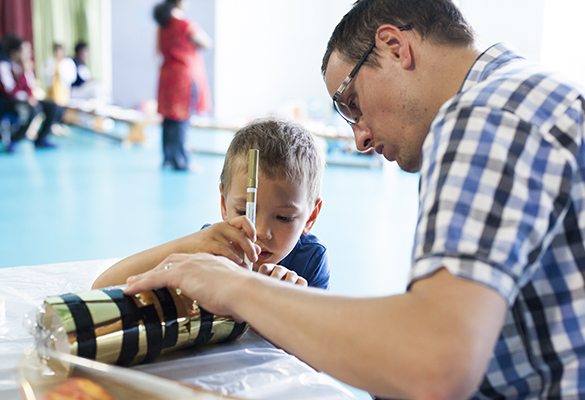Young Children Thinking Mathematically focuses on children’s mathematical development, which is explored in the area of learning and development entitled Problem Solving, Reasoning and Numeracy in the Early Years Foundation Stage.
The Hub
Literacy and Mathematics
Information and guidance for early years practitioners to develop literacy and mathematics skills in children 0 to 5 years.
Teaching should be such that what is offered is perceived as a valuable gift and not as a hard duty.
- Albert Einstein
Story telling
Instead of reading books to children, tell stories to them off the top of your head. Telling, rather than reading stories, changes the flow and dynamics between the story teller and the audience (as opposed to the reader and the audience).
You could make stories up off the top of your head. How about the setting's pet or beloved toy going on an adventure? You could re-tell one of the children’s best loved books, but using your own words – don’t worry children will remind you if you forget a part, that’s the beauty of storytelling. Or you could make up something new within the story with the aid of the children. Why not use prompts and puppets to bring stories to life and focus on those rather than the words written on the page.
Another idea is to ask children to tell their own story. In small groups you could ask the children in turn to come up with a line of the story. As they talk note down word for word what they say and then read it back to them at the end. You will be amazed at where children’s imaginations will take them.
The best way that you can promote reading with your children is to read every single day starting as soon as possible. The 50 core books for 2 year olds are a great way to start.

